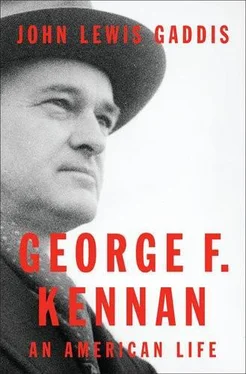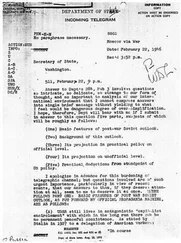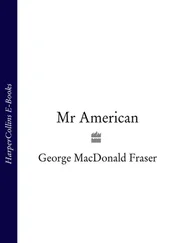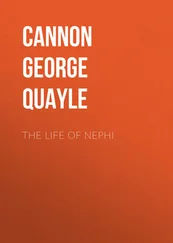BY THE TIME HE ARRIVED AT PRINCETON IN 1921, GEORGE KENNAN had made his way through a difficult childhood. He was healthy, handsome, clever, and even if he had scraped by on his entrance examinations, at least as well educated as most of the other freshmen who enrolled that fall: the university was still decades away from admitting students chiefly for academic excellence. Fitzgerald was not far off when he described Princeton, in This Side of Paradise , as “the pleasantest country club in America.” 1
But even he acknowledged that the place was more than this. Fitzgerald has his hero, Amory Blaine, lying on the grass one night, surrounded by halls and cloisters “infinitely more mysterious as they loomed suddenly out of the darkness, outlined each by myriad faint squares of yellow light…. Evening after evening the senior singing had drifted over the campus in melancholy beauty, and through the shell of [Amory’s] undergraduate consciousness had broken a deep and reverent devotion to the gray walls and Gothic peaks and all they symbolized as warehouses of dead ages.” Kennan read these words at St. John’s, and they shaped his expectations. “The taxi carried me up University Place and down Nassau Street… and as I discerned, through its windows, the shapes of the Gothic structures around Holder Hall, my penchant for the creation of imaginative wonders reached some sort of a crescendo. Mystery and promise, glamour and romance seemed to glow, like plasma, from these dim architectural shapes.” 2
And yet Kennan went on to portray Princeton in his memoirs in such bleak terms that readers have recoiled ever since. “I knew not a soul in college or town. I was given the last furnished room in the most remote of those gloomy rooming houses far off campus to which, at the time, late-coming freshmen were relegated…. I remained, therefore, an oddball on campus, not eccentric, not ridiculed or disliked, just imperfectly visible to the naked eye.” He was careful to blame himself, not the university: “I was fairly treated at its hands; I respected it intellectually; I took pride in it as an institution.” But “Princeton was for me not exactly the sort of experience reflected in This Side of Paradise.” 3
It is worth noting, though, that Kennan wrote this depressing account of his years at Princeton in the town of Princeton, having chosen to return a quarter-century after he graduated: he would live and work there for another half-century. Young George’s experience, however he may have remembered it, began a trajectory that would bring him back to the place where he began a life away from home—and it would in time become home.
“I suppose you’ve heard that I got into Princeton safely,” George wrote Jeanette on September 28, 1921. He meant that he had arrived not knowing whether he would be admitted to the university itself, or would have to take remedial courses at one of the tutoring schools just off campus. He was a year younger than his classmates. His course of study would be daunting: English, French, Physics, History and Economics, Hygiene, Physical Training, and remedial Latin. But, he assured Jeanette, “I like Princeton quite well.” The honor system especially surprised him, extending not only to unsupervised examinations but to credit in local stores. “[I]f a student buys something and then finds he hasn’t the money to pay for it, the storekeepers insist on his taking the goods, paying when he wants to, and they won’t even take his name.” 4
By October, when his father came to visit, George was more measured in his enthusiasm and a bit shaken in self-confidence: “I believe he was more impressed with Princeton than I myself have been.” “Make good. I know you will,” Kent senior said, adding only “that I should not cease entirely, now that I was away from home, to go to church.” George knew how his father would feel if he failed, “and besides there’s another reason—you know her name,” he wrote Jeanette. “She got me into Princeton and it wouldn’t be quite playing the game to flunk out, without a hard struggle.” 5
Thanksgiving found George succumbing to introspection, which was “like looking through a window into a dark and dirty old shack when you have a myriad of nice views to look at in the other direction.” He asked Jeanette to try to stop the family from worrying about his lack of friends: “It honestly doesn’t bother me in the least, except that I wish the lack were greater.” The letter contained an apology for not writing earlier, because he had not been able to afford a stamp. 6
George probably embroidered the truth a bit, but he was very cautious—as he had been at St. John’s—about spending money: “I felt I mustn’t make it too hard for my father.” Florence Kennan had left her children a fund for college, but he had never asked his father how much it was. “I rather assumed that it was barely enough.” This led George to conclude that if he was going to make it back to Milwaukee for Christmas, he would have to earn the train fare. He did so by taking a temporary job as a postman in Trenton, slogging through slushy streets for days until he had earned the necessary $28. In doing so, he contracted scarlet fever. 7
George arrived home sick and was promptly quarantined on the third floor at the Cambridge Avenue house, with a trained nurse brought in to care for him. Because there was no penicillin, “I came within an inch of dying.” His sisters were sent back to their colleges wondering whether they would ever see him again. But he slowly recovered and toward the end of his isolation even began “falling a little in love” with his nurse. He would not return to Princeton until the beginning of March, having lost much of his second semester. The physical effects, Jeanette thought, were permanent: “When he was at St. John’s, he was a very healthy young boy,” but “he was never as well after that.” And it had all been unnecessary, because there was enough money. He just hadn’t known it. “I was a junior in college when I found out,” Jeanette recalled, so she “went out and bought new clothes!” 8
Back on campus, George found his teachers sympathetic and the amount of work to be made up less than he had expected. He found a place in the freshman commons orchestra and tried out for—but did not stay with—the Daily Princetonian. He even began to have fun, breaking into the Junior Prom with other freshmen to steal sandwiches, helping a friend get out of a lease by harassing a landlady with as much noise as possible at four A.M., and pursuing a new hobby of shooting at magazines, in the fireplace, with a revolver. Money, however, continued to worry him. His friends treated him well, “considering my lack of personality…. But I just can’t go much with their set unless I spend a little more money.” It was worth doing this, “because if there’s any one thing that isn’t good for me it is to be alone, and it’s a choice of going with them or with no one.” 9
With April came “soft days, and still softer nights.” Victrolas played through open windows each evening. The campus was overrun with girls on weekends, making it impossible to play tennis “because we can’t swear.” But he did get himself to a prom without doing anything “absolutely wrong, outside of wearing the same soft shirt with a borrowed tuxedo, two nights in succession. I got along on about $31, having that amount when I started and three cents when I ended.” 10
And then there was—alluringly—New York. George’s oldest sister, Frances, who had long since left Milwaukee to become an actress, lived there and generously offered the use of her sofa on occasional weekends. “I was absolutely neurotic with [the] excitement of this city,” George recalled many years later, “to me it seemed just like fairyland.” But Frances and her friends weren’t interested in college students. She remembered it differently: “I’ll tell you what my friends thought: ‘Oh, how darling! Pink cheeks!’”
Читать дальше












